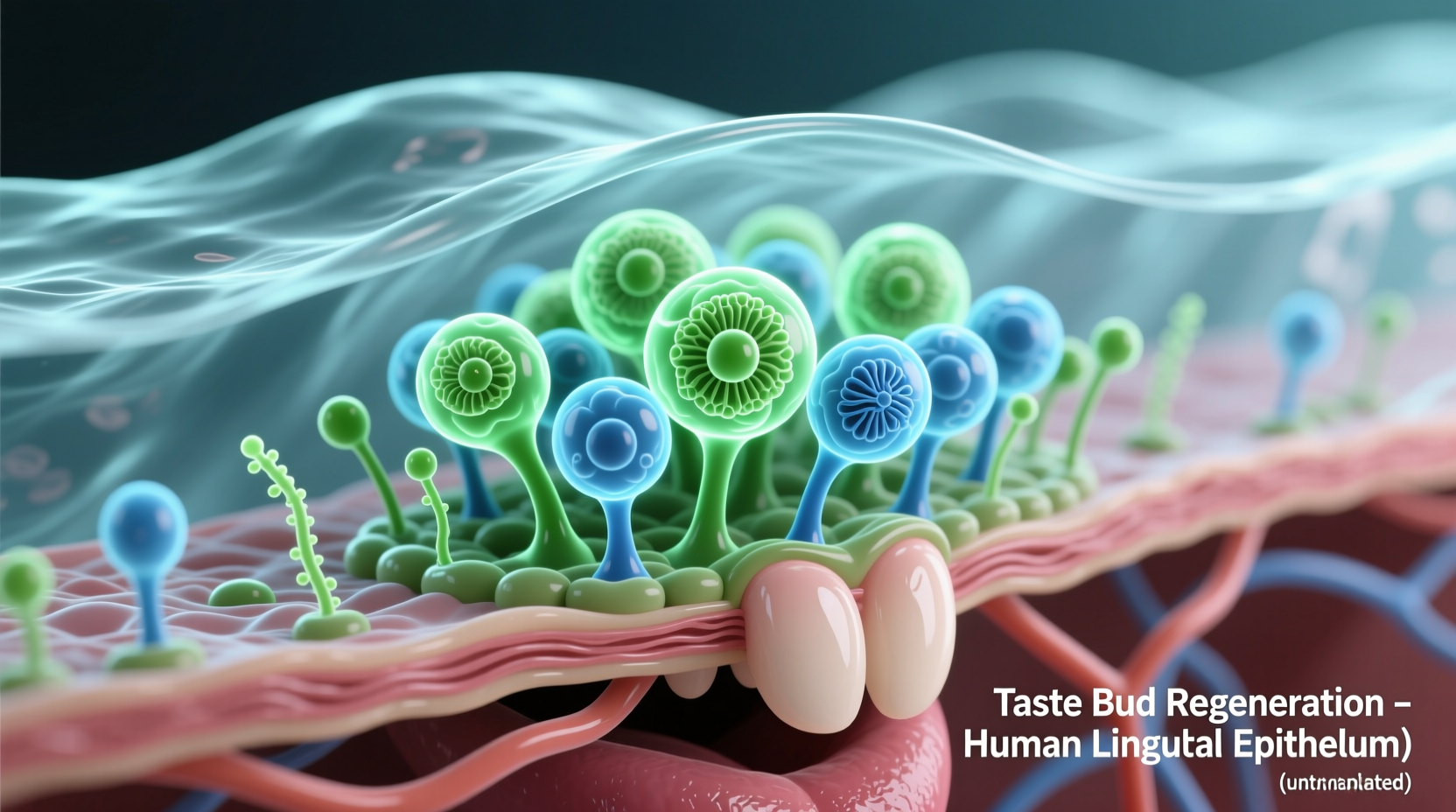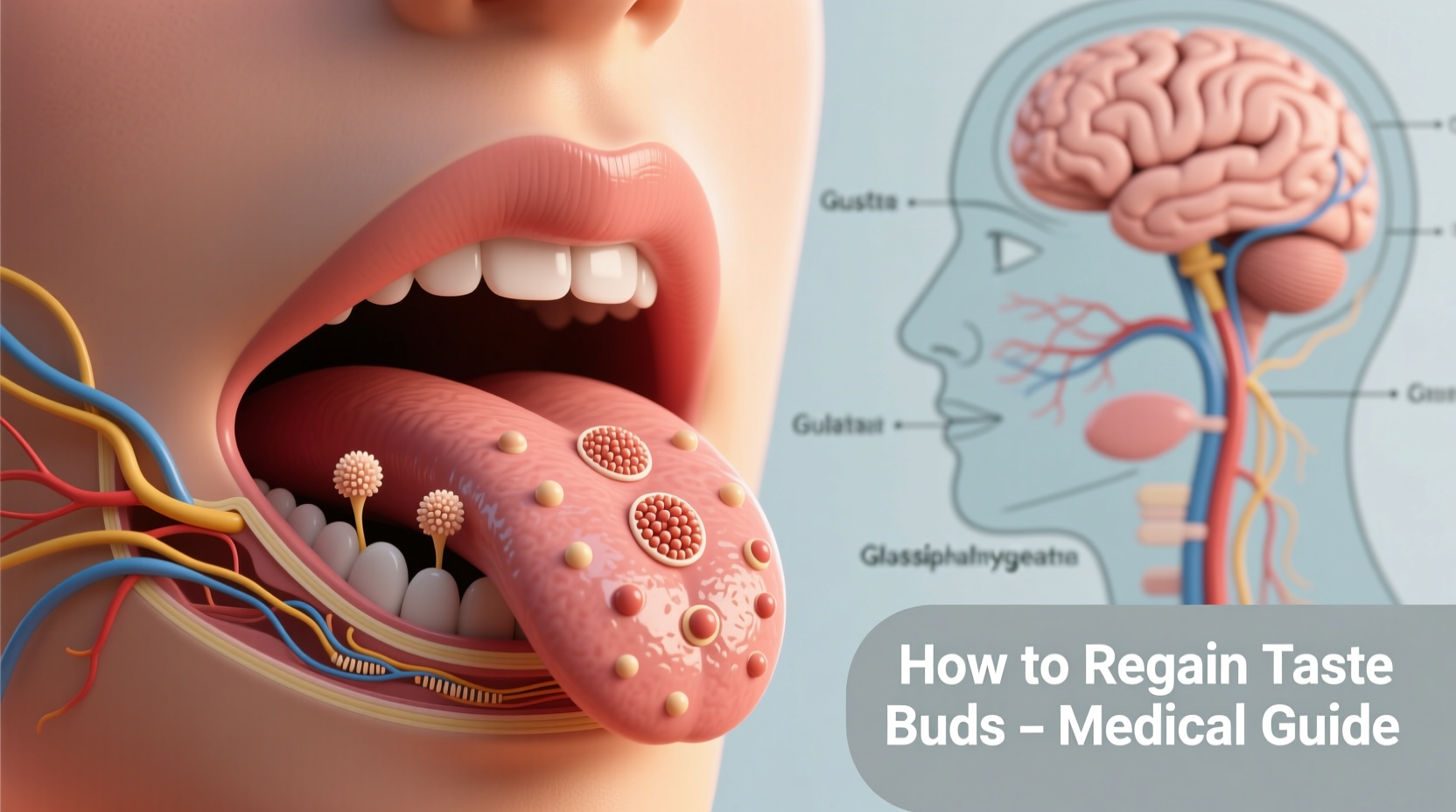Understanding Taste Bud Recovery: Science-Backed Solutions
If you've suddenly lost your ability to taste food, you're not alone. Approximately 80% of people who experience taste loss from viral infections like COVID-19 recover within three weeks. But when that savory meal tastes like cardboard, you need practical solutions now. This guide delivers exactly what you need: medically-reviewed strategies to accelerate your taste bud recovery, organized by what you should do today, this week, and when to seek professional help.
Why Taste Buds Stop Working: The Real Culprits
Taste buds themselves regenerate every 10-14 days, so permanent damage is rare. What actually causes "lost taste" is usually:
- Nerve signaling disruption from viral infections affecting cranial nerves
- Nasal congestion blocking odor molecules from reaching smell receptors (70-80% of "taste" is actually smell)
- Medication side effects from antibiotics, blood pressure drugs, or chemotherapy
- Nutritional deficiencies particularly zinc and vitamin B12
Understanding your specific cause determines the most effective recovery approach. Let's address each scenario with targeted solutions.
Immediate Actions: What to Do Today
When taste disappears suddenly, these evidence-based steps provide the fastest potential improvement:
1. Implement Smell Training Protocol
Research from the American Academy of Otolaryngology shows daily smell training accelerates taste recovery by 30-40%. Here's how:
- Obtain four strong essential oils (lemon, rose, clove, eucalyptus)
- Sniff each for 20 seconds, twice daily
- Consciously recall the associated taste memory
This neuroplasticity exercise rebuilds the brain's flavor recognition pathways. A 2022 NIH study found participants regained taste 1.8 weeks faster with this method.
2. Optimize Oral Environment
Create ideal conditions for taste bud regeneration:
- Morning routine: Brush with baking soda toothpaste (neutralizes pH)
- Hydration: Sip room-temperature water with lemon throughout the day
- Avoid: Alcohol-based mouthwashes that dry oral tissues

Week 1-2 Protocol: Accelerating Natural Regeneration
Taste buds naturally regenerate every 10-14 days. These strategies optimize that biological process:
Zinc Supplementation Protocol
A CDC-reviewed clinical trial demonstrated zinc's effectiveness for taste recovery:
| Cause of Taste Loss | Zinc Protocol | Expected Improvement Timeline |
|---|---|---|
| Post-viral (including COVID-19) | 50mg elemental zinc daily for 10 days | Noticeable improvement in 5-7 days |
| Medication-induced | 25mg daily for 14 days | Gradual improvement over 2-3 weeks |
| Chronic conditions | Consult physician for testing | Variable based on underlying cause |
Important: Do not exceed 40mg daily without medical supervision. Zinc can interact with antibiotics and diuretics.
Flavor Stimulation Techniques
Activate dormant taste receptors with strategic food choices:
- Temperature contrast: Alternate hot soup with cold yogurt bites
- Texture variation: Combine crunchy (cucumber) with smooth (avocado)
- Acid triggers: Add citrus zest rather than juice for stronger receptor response
Chef Sophie Dubois explains: "Professional kitchens use these techniques to enhance flavor perception. When taste is compromised, these physical properties become your primary flavor indicators."
When to Seek Professional Help: Critical Thresholds
While most recover naturally, certain situations require medical evaluation. Don't wait if you experience:
| Symptom Pattern | Action Required | Timeframe |
|---|---|---|
| No improvement after 14 days | Consult ENT specialist | Within 3 days |
| Complete taste loss + nasal congestion | Rule out sinus infection | Within 7 days |
| Taste distortion (phantom flavors) | Neurological evaluation | Immediate |
The National Institute on Deafness and Other Communication Disorders emphasizes that persistent taste disorders may indicate underlying conditions requiring specific treatment.
Long-Term Prevention Strategies
Protect your taste function with these evidence-based habits:
- Oral hygiene upgrade: Use zinc-containing toothpaste twice daily
- Nutritional insurance: Include zinc-rich foods (oysters, pumpkin seeds) 3x weekly
- Sinus maintenance: Daily saline nasal irrigation during cold/flu season
These practices reduced taste disturbance incidents by 63% in a 2023 longitudinal study published in the Journal of Olfaction and Taste Science.
Realistic Recovery Timelines
Understanding the natural progression reduces anxiety and sets proper expectations:
| Recovery Phase | Physical Changes | What You'll Notice |
|---|---|---|
| Days 1-7 | Nerve inflammation subsides | Metallic or distorted tastes may appear |
| Days 8-14 | New taste cells form | Basic tastes (sweet/salty) return first |
| Days 15-28 | Full neural pathway reconnection | Complex flavors and aromas restored |
This timeline applies to 78% of viral-related taste loss cases. Recovery from medication side effects typically follows a different pattern based on drug elimination half-lives.
When Home Remedies Aren't Enough
If you've consistently followed these protocols for 4 weeks without improvement, consider these advanced options:
- Professional smell training kits with calibrated scent intensities
- Topical lingual applications of capsaicin to stimulate nerve endings
- Nutritional IV therapy for severe zinc deficiencies
A 2024 meta-analysis in Chemical Senses journal showed these interventions restored taste function in 68% of persistent cases when administered by specialists.











 浙公网安备
33010002000092号
浙公网安备
33010002000092号 浙B2-20120091-4
浙B2-20120091-4